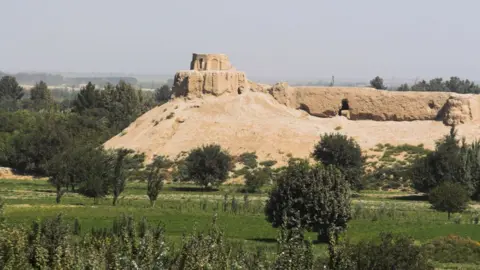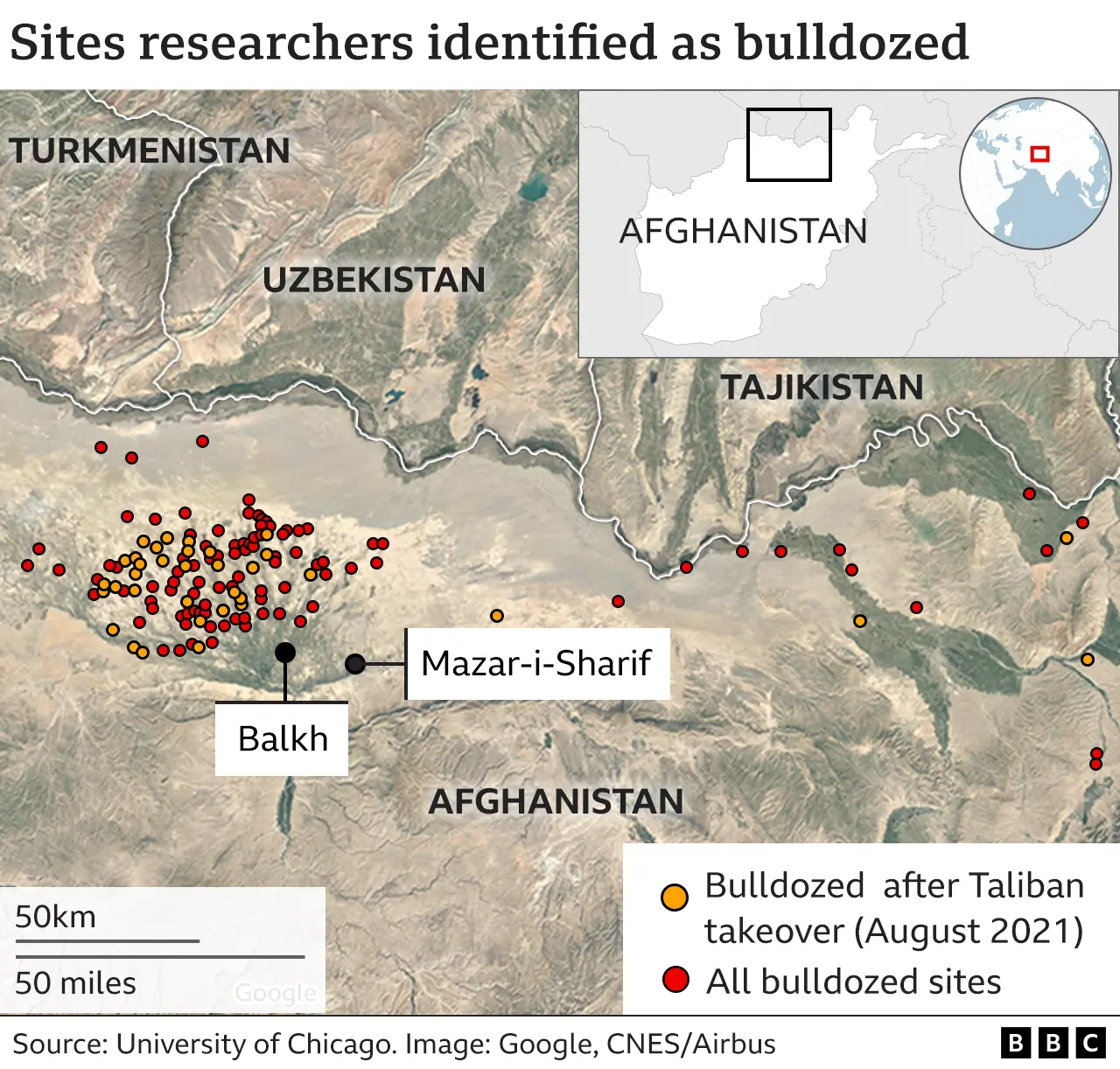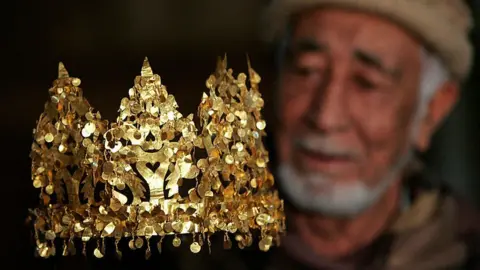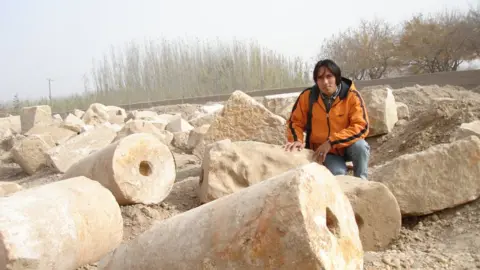ÓSCAR GRANADOS
El Pais
Madrid
FEB 13, 2024
After the Taliban regime banned its cultivation for the second year, the price of opium poppy, which is used to produce heroin, reaches its highest level in two decades
The price of Afghan opium is skyrocketing. One kilogram of the poppies’ juice — the key ingredient of narcotic painkillers such as morphine and stronger derivatives like heroin — costs around $408 on the market. That is almost five times what it was in 2022, and marks its highest price in two decades. The cultivation ban imposed by the Taliban regime has had a major impact on opium poppy production in all regions of the mountainous country, which is located in the heart of Asia and was, until recently, the world’s leading supplier of the substance.
At the national level, according to estimates from the United Nations Office on Drugs and Crime (UNODC), the area used for poppy cultivation decreased by 95.3% in 2023 (down from 233,000 hectares to 10,800 hectares). The drop has disrupted the country’s fragile economy, which seemed to have stabilized by the end of 2022 after its decline when the Taliban entered Kabul and took control of the country on August 15, 2021. “The ban has deprived millions of people of income,” says Kate Clark, co-director of Afghanistan Analysts Network, a non-profit organization. Although it was announced in April 2022, the veto was implemented in earnest beginning with the fall planting season of the same year, meaning that in 2023, it completed its first year in effect.
Prohibition has put pressure on a country where millions suffer from hunger, due to decades of armed conflict, corruption, political instability and now too, the effects of climate change, which have included severe droughts and freezing winter temperatures. “It has cost farmers more than $1 billion in lost revenue, not including losses related to the processing, trade and export of opiates,” explains William Byrd, senior expert on Afghanistan at the United States Institute of Peace, an independent agency. This is expected to have a negative effect on the country’s overall economy. Statistics regarding that subject are scarce and unreliable, and so far, there have been no details released on 2023 production. The World Bank, however, estimates that Afghan GDP declined by 21% in 2021 and by another 6% in 2022. The pace of the economy remained weak throughout the previous fiscal year and its outlook for 2024 is poor, given that opium continues to be banned and humanitarian aid is in decline, a consequence of the Taliban regime’s return.
“The economic effect of the ban has been somewhat mitigated by some stockpiles from previous harvests,” Byrd says. “But poor households in rural areas don’t have that cushion, and suffer more. As they run out, the macroeconomic impact will get worse,” he says. Since the late 1970s, opium has played a key role in the country, especially in rural areas. In 2022, it contributed one-third of the total value of national agricultural production, according to the UNODC. At the household level, its sale accounts for up to 50% of a family’s income. In some regions, it occupied a significant proportion of land. In Helmand, located in southern Afghanistan, the site of hundreds of murders nearly always carried out by the Taliban, one-fifth of the land under cultivation was devoted to opium poppy.
In some districts, the proportion was even higher and had displaced extremely important foodstuffs, such as wheat, U.N. sources says. That cereal is once again filling fields, as its germination cycle coincides with that of poppy. An analysis that focused on four provinces (Farah, Helmand, Kandahar and Nangarhar, which accounted for 74% of poppy production in 2022), suggested that approximately 68% of arable land had been replanted with grain. This means fewer resources. While a hectare of wheat sells for $770, a hectare of poppy generates around $10,000, according to a U.N. report. “Local agriculture is going through a real drama,” says José Miguel Calvillo, professor of International Relations at the Department of Political Science and Sociology of Complutense University of Madrid. “Whether we like it or not, the sale of opium is one of the main sources of income,” says Calvillo, author of the Spanish language book Afganistán: un conflicto permanente (Afghanistan: a permanent conflict).
The effects of the Taliban’s opium ban have even gone international. Afghan opium is used to produce 95% of the heroin consumed in Europe, according to Orzala Nemat, a research associate at Humanitarian Policy Group, in an article published by Chatham House, a London-based think tank. “The ban could lead to a global shortage, and it is unlikely that Myanmar, which is now the top producer of the opium poppy, and other countries, will be able to fill the gap in the short term,” say UNODC sources. The gap is significant. With the 2023 harvest, some 333 tons of opium have been generated, 94.6% less than a year earlier. This translates into less heroin: some 24 to 38 tons of the export grade semi-synthetic opiate (which features a purity of between 50% to 70%), which is a fraction of 2022′s numbers (between 350 and 580 tons).
A boost to fentanyl
Such a decline in production could lead to a reduction in purity or substitution of heroin with other substances in retail markets, some of which can be even more harmful, such as fentanyl, UNODC says. This is not the first time the Taliban have turned off the opium supply. They also banned poppy cultivation during their previous regime (1996-2001). That prohibition was similar to their current ban, though back then, farmers had sufficient stockpiles, which served to weather the situation and continue to answer demand for the illicit drug. Today, however, the amount of opium poppy and other opiates that remain stockpiled in farmers’ inventories is unknown. Continued seizures and field reports suggest that farmers and traders are depleting their stockpiles, according to the UNODC.
“The Afghan crisis is completely forgotten by the Western world,” Calvillo says. And that lack of attention could be exploited by criminal groups. “Reduced incomes along the Afghan opiate supply chain could stimulate alternative illicit activities, potentially leading to increased trafficking in other substances such as synthetic drugs like methamphetamine,” states the UNODC report.
Translated by Caitlin Donohue.

 Afghanistan Peace Campaign
Afghanistan Peace Campaign






